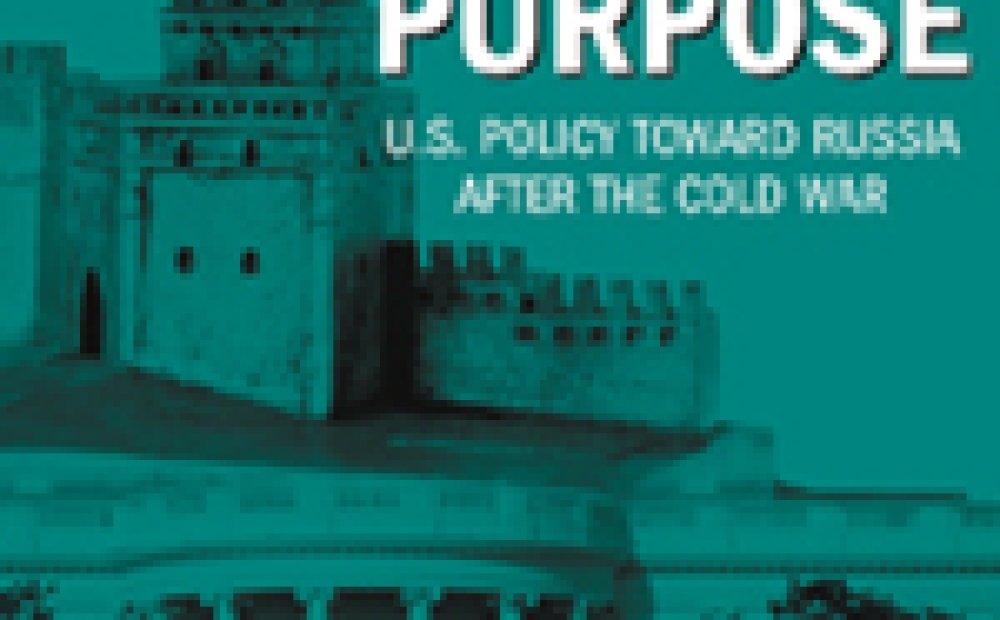Power and Purpose: U.S. Policy Toward Russia After the Cold War

Authors James M. Goldgeier and Michael McFaul will present their recently published book on US foreign policy towards Russia after the Cold War. The book traces the formulation and evolution of American foreign policy toward the Soviet Union and Russia during the tumultuous and uncertain decade following the end of the Cold War. It examines how American decisionmakers--particularly in the executive branch--coped with the opportunities and challenges presented by a new Russia.
This event is organized by the Cold War International History Project and co-sponsored by the Kennan Institute for Advanced Russian Studies at the Woodrow Wilson Center and the Institute for European, Russian, and Eurasian Studies at The George Washington University.
Short Bios:
James M. Goldgeier is director of the Institute for European, Russian and Eurasian Studies at George Washington University, where he is associate professor of political science and international affairs. He is also an adjunct senior fellow in Europe studies at the Council on Foreign Relations. He is the author of Not Whether but When: The U.S. Decision to Enlarge NATO (Brookings, 1999) and Leadership Style and Soviet Foreign Policy: Stalin, Khrushchev, Brezhnev, Gorbachev (Johns Hopkins, 1994).
Michael McFaul is the Peter and Helen Bing Senior Fellow at the Hoover Institution. He is also an associate professor of political science at Stanford University and a nonresident associate at the Carnegie Endowment for International Peace. His books include Russia's Unfinished Revolution: Political Change from Gorbachev to Putin (Cornell, 2001) and with Timothy J. Colton, Popular Choice and Managed Democracy (Brookings, 2003).
Ambassador Jack F. Matlok Jr. has been a visiting professor of public and international affairs at Princeton University from 2001. He was George F. Kennan Professor at the Institute for Advanced Study in Princeton from 1996 to July 2001. From 1993 to 1996 he was Kathryn and Shelby Cullom Davis Professor in the Practice of International Diplomacy at Columbia University, New York City.
During his 35 years in the American Foreign Service (1956-1991) he served as Ambassador to the Soviet Union from 1987 to 1991, Special Assistant to the President for National Security Affairs and Senior Director for European and Soviet Affairs on the National Security Council Staff from 1983 until 1986, and Ambassador to Czechoslovakia from 1981 to 1983.
His book on the Soviet collapse, Autopsy on an Empire, was published in November 1995 by Random House. He is also the author of a handbook to the Russian edition of Stalin's works and of numerous articles on foreign policy, international relations, and Russian literature and history.
Mr. Matlock received his AB from Duke University (summa cum laude, 1950) and MA and Certificate of Russian Institute from Columbia University (1952). He has been awarded honorary doctorates by Greensboro College, Albright College, Connecticut College, and the Latvian Academy of Sciences.
From the Brookings Institution Press:
This book traces the formulation and evolution of American foreign policy toward the Soviet Union and Russia during the tumultuous and uncertain decade following the end of the Cold War. It examines how American decisionmakers—particularly in the executive branch—coped with the opportunities and challenges presented by a new Russia.
Based on extensive interviews with senior U.S. and Russian officials, the book explains George H.W. Bush's response to the dramatic coup of August 1991 and the Soviet breakup several months later, examines Bill Clinton's efforts to assist Russia's transformation and integration, and analyzes George W. Bush's policy toward Russia as September 11 and the war in Iraq transformed international politics. Throughout, the book focuses on the tradeoffs and linkages among America's interests in promoting democracy and markets in Russia as well as its interests in reorienting Russia from security threat to security partner.
Understanding how three U.S. administrations dealt with these critical policy questions is vital for thinking not only about America's Russia policy but efforts to help transform and integrate other former adversaries.
From the Back Cover:
"If there is one book to read on what shaped American policy toward the
Soviet Union in its last years and Russia throughout the last decade,
this is it. It offers more than a narrative; it offers an explanation within a very useful conceptual framework. It understands that policy is not made either in a vacuum or by simple bureaucratic imperatives.
It is the product of ideas and real people who embrace those ideas. The
pull between those who believed we could and should transform Russia and
those who focused principally on the security dimensions of the relationship has, to differing degrees, shaped the policies of the first Bush, Clinton, and current Bush administrations. That reality, and the lessons to be learned from it, are thoroughly explored in this superb book."
— Ambassador Dennis B. Ross
"Power and Purpose provides the best coverage of this crucial issue that
I have read. Combining a thorough narrative with incisive analysis,
Goldgeier and McFaul present clearly the making of U.S. policies towards
Russia in recent years—where we got it right and where we should have
done much better. A real contribution and a good read, as well."
— Anthony Lake, former National Security Advisor
Hosted By

Cold War International History Project
The Cold War International History Project supports the full and prompt release of historical materials by governments on all sides of the Cold War. Read more
